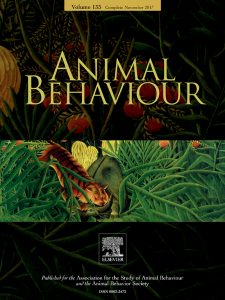 The author of a 2009 commentary exploring “sexually specific infanticide” in bears has won a judgment against Elsevier for using “untruthful and unverified” language in a 2011 retraction notice.
The author of a 2009 commentary exploring “sexually specific infanticide” in bears has won a judgment against Elsevier for using “untruthful and unverified” language in a 2011 retraction notice.
The last author, Miguel Delibes, who filed the suit in 2014, explained that the judge ruled he should accept the journal’s decision to retract his paper, but “confirmed that my honorability had been damaged” by the false accusation in the original retraction notice. According to a new note on the paper from the publisher, the court required the journal to publish part of its ruling to correct the record.
The original retraction notice, published by Animal Behaviour in March 2011, stated that the authors “misappropriated data, plagiarized and concealed the authorship of work” published in a 2007 book. An update to the March 2011 notice, published in October of that year, changed the wording, characterizing the issue “as some of the findings have previously been published” in the 2007 book “without proper cross-referencing.”
Delibes, professor at Consejo Superior de Investigaciones Científicas (CSIC) in Seville, Spain, told us that he filed the lawsuit against Elsevier in September 2014. The judge ruled against him in March of this year, but he appealed the decision.
In October, an appeals court in Spain determined that Delibes and his co-authors had been “falsely accused of plagiarism and misappropriation of data.”
On Dec. 14, Elsevier published a note that began:
Following legal action taken by Dr Miguel Delibes, who objected to the retraction, the Sevilla Court of Appeals requires us to publish the following paragraph – contained in its ruling of October 9th 2017 – in relation to the first version of the retraction which was corrected in October 2011.
Here’s the English translation of the decision issued by the Sevilla Court of Appeals and provided by Elsevier in the note:
We declare that the defendant ELSEVIER LIMITED carried out an illegitimate interference in the right to honour of MIGUEL DELIBES DE CASTRO through the untruthful and unverified explanatory note in which it was stated that “THE AUTHORS HAVE MISAPPROPRIATED DATA, PLAGIARISED AND CONCEALED THE AUTHORSHIP OF WORK THAT HAD ALREADY APPEARED” that was attached, with a red watermark with the word “RETRACTED” over the article “Evidence of sexually selected infanticide in Brown bears in the Cantabrian Mountains”, which article was published in the online edition in December 2009 and permanently in the volume of February 2010, and which retraction notice was maintained in the digital edition between the months of March and October 2011.
The paper, “Evidence of sexually selected infanticide in an endangered brown bear population,” has been cited seven times, according to Clarivate Analytics’ Web of Science, including once by the first retraction notice and three times since the retraction.
A spokesperson for the publisher said that it “can’t speak to the legal aspects of the case,” but said:
We didn’t change the original notice because of a court order – we had already changed it in October 2011 after the authors contacted us with new information.
The spokesperson explained that the new information from the authors “led to a review of the original decision” and the conclusion that ”the original wording of the retraction notice was inappropriate.”
Delibes explained that the editor of Animal Behaviour retracted the paper without contacting the authors and “hearing our point of view.” He added that the missing reference referred to in the retraction notice was included in the original manuscript, “but during the editing process it was removed at the request of one of the reviewers.”
Delibes told us:
I am completely convinced that my co-authors and I are not guilty of scientific malpractice, and that the retraction was unfair and an abuse of power on the part of the journal-Elsevier.
Like Retraction Watch? Consider making a tax-deductible contribution to support our growth. You can also follow us on Twitter, like us on Facebook, add us to your RSS reader, sign up on our homepage for an email every time there’s a new post, or subscribe to our daily digest. Click here to review our Comments Policy. For a sneak peek at what we’re working on, click here. If you have comments or feedback, you can reach us at [email protected].